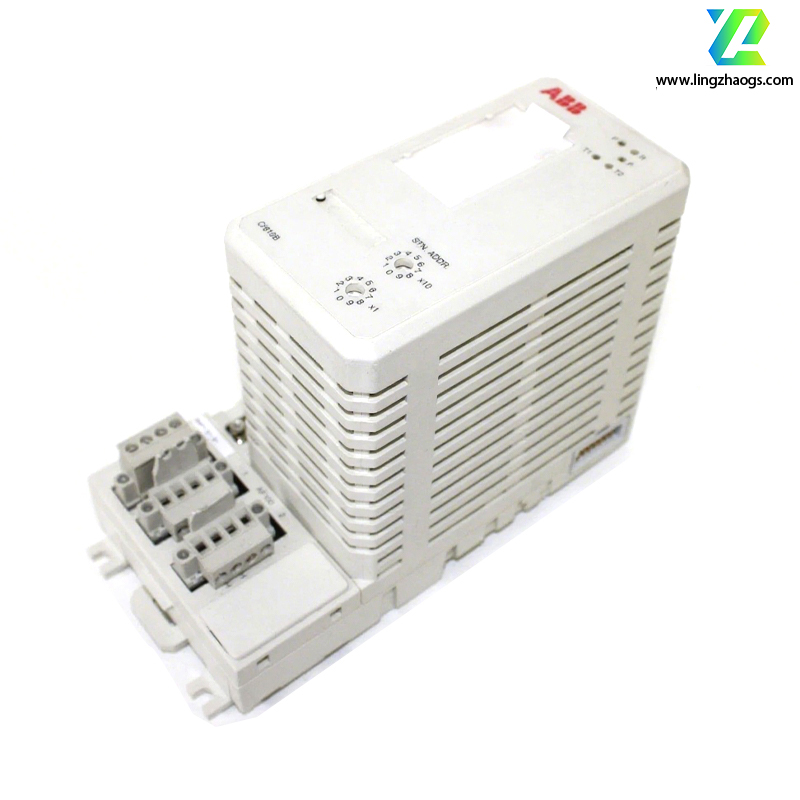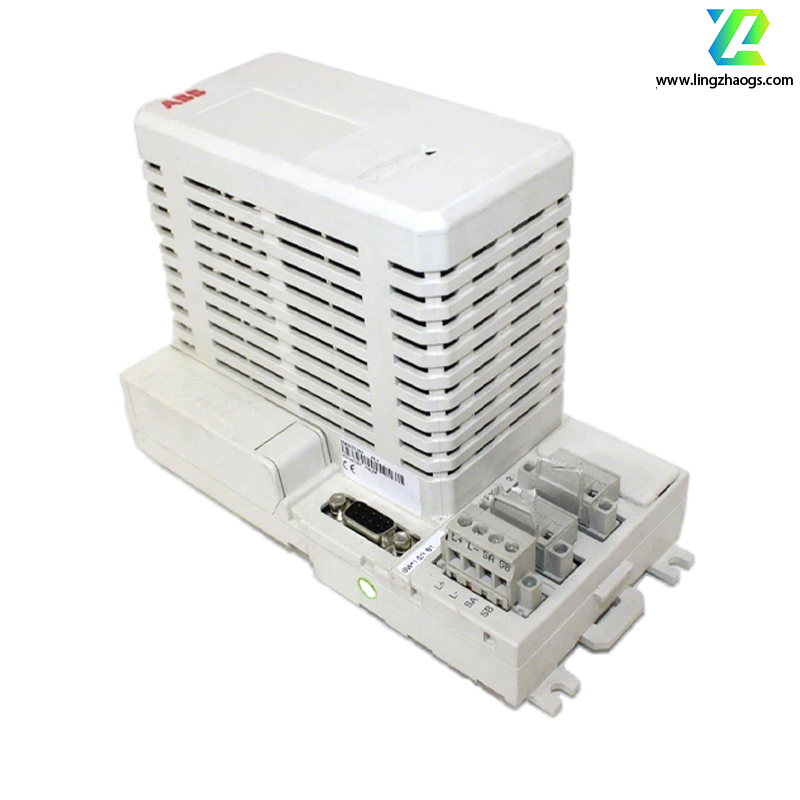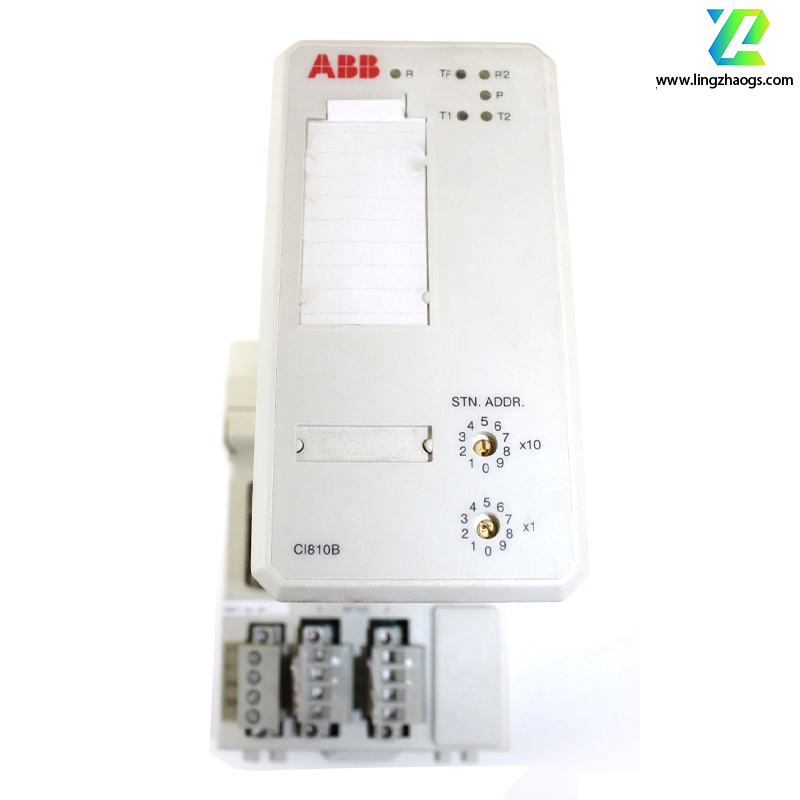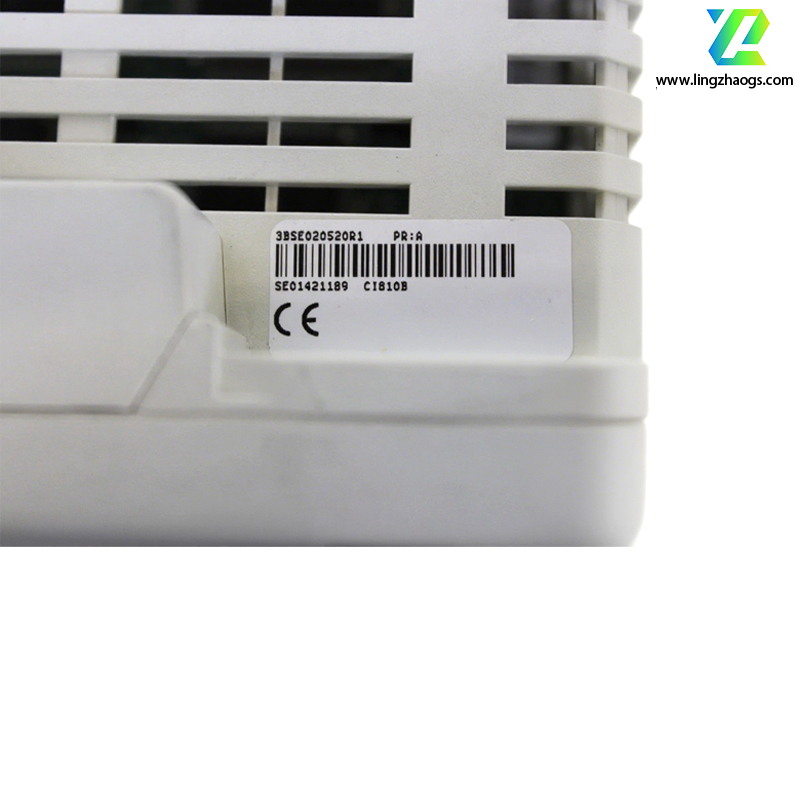The CI810B is a communication interface module launched by ABB. The following is a detailed introduction from the dimensions of its functional features, technical parameters, and applications:
It supports a variety of communication protocols, including PROFIBUS DP-V1, Foundation Fieldbus, Modbus TCP/IP, CANopen, EtherNet/IP, and PROFINET IO. This enables communication with devices from different manufacturers and of different types, eliminating "communication barriers" between heterogeneous devices. It provides convenience for building complex industrial automation systems—for example, connecting Foundation Fieldbus-based process transmitters, PROFINET IO-enabled industrial robots, and Modbus TCP/IP-equipped intelligent meters in a single production line.
Equipped with data filtering, conversion, and calculation functions, it can preprocess collected data (such as normalizing raw data from sensors, filtering out abnormal interference data, or calculating average values of real-time data) before transmitting it to the control system. This reduces the data processing burden on the main controller, optimizes the response speed of the entire system, and improves overall operational efficiency.
It features an electrical isolation design, which effectively isolates the module’s internal circuit from external on-site circuits. This prevents the spread of electromagnetic interference, voltage surges, or ground loop faults between different parts of the system, enhances the stability and safety of the entire control system, and ensures stable operation even in harsh electromagnetic environments (such as workshops with strong motor interference or high-voltage equipment).
It has powerful diagnostic capabilities to monitor communication status (such as link connectivity, data transmission rate, and packet loss rate) and device operating conditions (such as module temperature and power supply stability) in real time. When potential communication issues (e.g., unstable bus signals) or device faults (e.g., interface short circuits) occur, the module can promptly detect them and feed back alerts to operators via front-panel LED indicators (e.g., red fault lights flashing) or the industrial communication network. This helps maintenance personnel quickly locate and resolve problems, minimizing system downtime.
The CI810B supports hot-swapping, allowing the module to be plugged in or out directly during system operation without shutting down the entire production line or control system. This greatly facilitates on-site maintenance, module upgrades, or replacement of faulty units, reduces unplanned system downtime, and ensures continuous and efficient production.
- Power Supply: Input voltage is 24V DC, and input current ranges from 120mA to 150mA, which is compatible with standard industrial 24V DC power supply systems and has low power consumption, reducing the load on the control cabinet power supply.
- Communication Interfaces:
- Includes Ethernet interfaces and RS-485 interfaces. The Ethernet communication rate is 10/100Mbps (adaptive to different network speeds), suitable for high-speed data transmission scenarios such as connecting to upper-layer MES systems or cloud platforms.
- The RS-485 interface supports a data transmission rate of 9.6kbps to 115.2kbps, which is ideal for long-distance, low-speed communication with on-site devices such as sensors and discrete actuators.
- Operating Temperature: The operating temperature range is -25°C to 70°C, and the storage temperature range is -40°C to +85°C. This wide temperature adaptability allows the module to work stably in extreme environments such as low-temperature outdoor control cabinets or high-temperature chemical workshops.
- Dimensions and Weight: There are slight differences in data from different sources; the approximate dimensions are 120mm (length) × 100mm (width) × 40mm (height), and the weight is about 0.4-0.5kg. The compact size enables space-efficient installation in control cabinets with limited space.
- Protection Class: Has an IP20 protection rating, which can prevent the intrusion of solid objects larger than 12.5mm (such as fingers) and a small amount of dust. It does not require an additional protective housing and is suitable for installation inside enclosed industrial control cabinets.
It is widely used in scenarios such as production line control, equipment control, process control, data acquisition, and quality control. For example, in automated assembly lines, it connects PLCs, conveyor belt controllers, and quality inspection sensors to realize precise monitoring of the production process (e.g., tracking part positions) and automated control (e.g., adjusting conveyor speed), ensuring consistent production quality.
In industries such as automobile manufacturing, food and beverage, chemical engineering, and oil and gas, the CI810B connects various production equipment (e.g., welding robots, filling machines, and reaction tank controllers) and sensors (e.g., temperature sensors, pressure sensors). It enables automated and intelligent management of production processes—for instance, coordinating data transmission between painting robots and drying ovens in automobile factories, or monitoring mixing tank temperatures and material flow rates in food processing plants.
It is applicable to power generation systems, power grids, and hydropower plant monitoring systems. For example, in thermal power plants, it connects steam pressure transmitters, turbine speed sensors, and generator controllers to realize real-time monitoring of energy production processes (e.g., boiler pressure) and precise control of power transmission (e.g., adjusting generator output), ensuring the stable and safe operation of the energy system.
In water treatment and wastewater treatment processes, the module is used for device control (e.g., regulating water pump speed, controlling valve openings) and water quality monitoring data transmission (e.g., transmitting pH value, turbidity, and residual chlorine data from sensors to the central control system). This ensures efficient and stable operation of the water treatment process and meets environmental protection standards for water quality.
It is applied in fields such as railway transportation and highway toll systems. For example, in railway signal systems, it realizes data interaction between track circuit sensors, signal lights, and train scheduling controllers; in highway toll systems, it connects toll booth terminals, vehicle detection sensors, and remote management platforms, improving the efficiency of toll collection and the safety of transportation operations.







